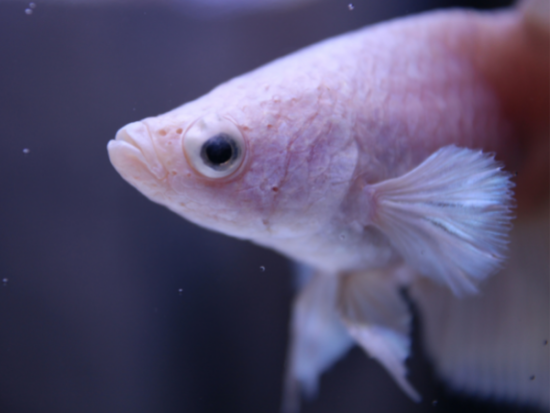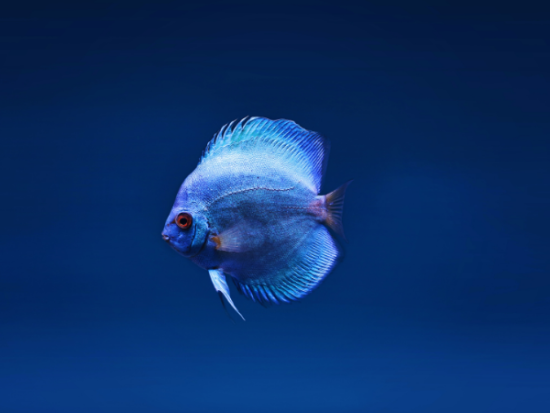Betta fish care – tips and important things to know
Betta fish care isn’t for everyone. Many controversies are surrounding the betta fish in the pet trade. These fishes are also popularly known as the Siamese fighting fish or the labyrinth fish.
Before anything else, it is important to note that if you are thinking of fish bettas as pets, they are not meant to be one. Much like many animals sold in pet stores, the betta fish is not meant for domesticity. They should be out in the open ocean for them to flourish.
The pet trade can be cruel for animals, but even more so for the betta fish. Pet stores, fish breeders, even online pet shops sell these creatures without regard for the proper way to care for them.
Many people who want to buy betta fish know close to nothing about how to care for them. Betta fish care is more complex and expensive than you might originally think. Check out below some of the most important things to know before becoming a betta fish owner.
The many misconceptions of betta fish as pets
Scientifically named Betta splendens, the betta fish are sensitive and complex creatures that need extra care and attention if they were turned into pets. They have had a bad history as highly exploited animals in the pet trade. Kept in tiny cups for unknown periods and displayed on shelves for potential buyers.
With their vibrant colors and unusually long tail and fins, many people are fascinated with the betta fish. Native to Asia, they usually live in shallow waters. They want to keep one in their fish tank for added aesthetics without caring for the animals.
However, the U.S. has made millions out of supporting breeding farms in Thailand and other countries that don’t take the proper precautions or protocols in raising these fishes.
What’s so special about the betta fish?
Apart from its beautiful color and unique temperament, the betta fish is known for a particular skill. A special organ called the labyrinth organ allows the fish to breathe air at the water’s surface. This helps them survive in waters with low oxygen levels. The betta fish can thrive in any natural body of water, including rice paddies, ponds, and lightly polluted waters.
Taking care of a betta fish for beginners
There are many misconceptions about betta fish care. The misinformation about how to properly care for them has more often than not led to the demise of the fish in tiny tanks or, worse, in small cups in pet stores.
Suffice to say, taking care of this particular species of fish is not for beginners. There are more than a few things to prepare if you want to try betta fish care. Some of the tips and things to note listed below are not everything you need to know, but they are a start.
Behavior
According to experts, betta fish can recognize their humans, much like a dog or cat. They are also curious creatures that will inspect everything you put in their surroundings—putting them in small spaces where the water level is less than the recommended amount can affect their temperament, cause them to get sick, and then die.
Food
Bettas require a well-balanced diet rich in protein. They are primarily carnivores, so feeding your betta solely plant roots won’t be enough to sustain them. Live or frozen food can be used as treats, but they will mostly need to eat insects and insect larvae to thrive. Be careful about overfeeding them. Too much uneaten food and waste in their habitat can cause toxicity.
Company
This is very important if you are planning on putting tank mates with your betta fish. They do not do well with many fish or water species. Male betta fish will fight aggressively, but female bettas can live harmoniously if taken care of properly. Betta fish can become aggressive and will fight and try to eat non-docile fishes and marine life. Keep separate tanks if this becomes an issue.
Tank
Arranging a tank setup for betta fish care is no easy task. Not to mention expensive and time-consuming. A single betta can live in a 5-gallon tank of water, but more is always better. Larger tanks are meant to imitate their natural habitat as much as possible.
Use a filtration system and water conditioner to ensure the water quality doesn’t contain chlorine or other toxins — don’t use tap water. Keep the temperature to a warm 76 to 82 degrees Fahrenheit. Add substrates, plants, and caves.
How do you know if a betta fish is healthy?
In betta fish care, healthy fishes usually show a good temperament. They have a large appetite, vibrant colors for the male, fast and energetic movements, as seen in their long tails and fins, and fast reactions to unknown stimuli. To achieve this, you need to be extra cautious of betta fish care.
Feeding them with a protein-rich diet that is fit for carnivores is a good start. Making them a habitat that would help them thrive will also up their chances of becoming healthy. Making sure their needs are properly met is crucial in keeping your betta not only alive but healthy. Remember, these creatures are not meant for domesticity, but if you so choose to do betta fish care, the least you can do is give them a good life.
How long do betta fishes live?
Betta fish typically grow no longer than three inches in length, not including their colorful tails and fins. They can live from 2 to 5 years in captivity but even longer in their natural habitats. Their lifespan is directly tied to the kind of environment you keep them in.
Betta fish care means providing them with the right food, habitat, water, light, and mental stimulation. All of these will likely make them live longer.
Once your betta fish exhibits some of the following symptoms, it is best to assess what needs to be changed in diet, habitat, or something else. Watch out for vibrancy in color, appetite loss, body spots, growing fungus in their scales, and cloudy eyes.
Elevated scales, restlessness, erratic swimming, bloating, weight loss, and unnaturally frayed fins can also be symptoms. These can signal your betta’s rapidly declining health.
Related Articles
Summary
The price that bettas pay in the pet trade is ultimately their very lives. The callous way many fish breeders manage betta farms and the trade that supports them causes these magnificent creatures to die at an alarmingly high rate. The United States is also responsible for supporting the trading of betta fishes in and out of the country.
If you are looking to do betta fish care, remember that the pet trade continues its abuse and exploitation of this species. As long as they are heavily funded, betta fishes will continue to suffer domesticity that is not meant for them.
They have unique wants and needs. If you are unwilling to put out what is needed for betta fish care like equipment, money, and time, they are perhaps not the best choice of pet for you.
Disclaimer: This article is not the official guide to the betta fish care process but is based on the author’s research or own personal experience.





